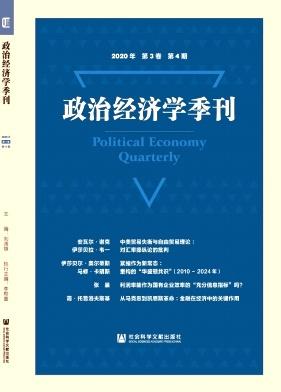Monetary Nationalism and International Economic Instability
引用次数: 9
Abstract
The paper describes the international transmission of boom-and-bust cycles to small periphery economies as the outcome of excessive liquidity supply in large center economies based on the credit cycle theories of Hayek, Mises and Minsky. We show how too expansionary monetary policies can cause overinvestment cycles and distortions in the economic structure on both a national and an international level. Feedback effects of crises in periphery on center countries trigger new rounds of monetary expansion in center countries, which bring about new international distortions. Crisis and contagion in globalized goods and financial markets indicate the limits of purely national monetary policies in countries which provide the asymmetric world monetary system with international currencies. This makes the case for a monetary policy in large countries that takes responsibility for its long-term effects on goods and financial markets in both the home and the foreign countries.货币民族主义与国际经济不稳定
本文以哈耶克、米塞斯和明斯基的信贷周期理论为基础,将繁荣与萧条周期向小型外围经济体的国际传导描述为大型中心经济体流动性供应过剩的结果。我们展示了过度扩张的货币政策如何在国家和国际层面上导致过度投资周期和经济结构扭曲。外围危机对中心国家的反馈效应引发中心国家新一轮的货币扩张,从而带来新的国际扭曲。全球化商品和金融市场的危机和传染表明,在为不对称的世界货币体系提供国际货币的国家,纯国家货币政策的局限性。这使得大国的货币政策有理由为其对国内外商品和金融市场的长期影响负责。
本文章由计算机程序翻译,如有差异,请以英文原文为准。
求助全文
约1分钟内获得全文
求助全文

 求助内容:
求助内容: 应助结果提醒方式:
应助结果提醒方式:


